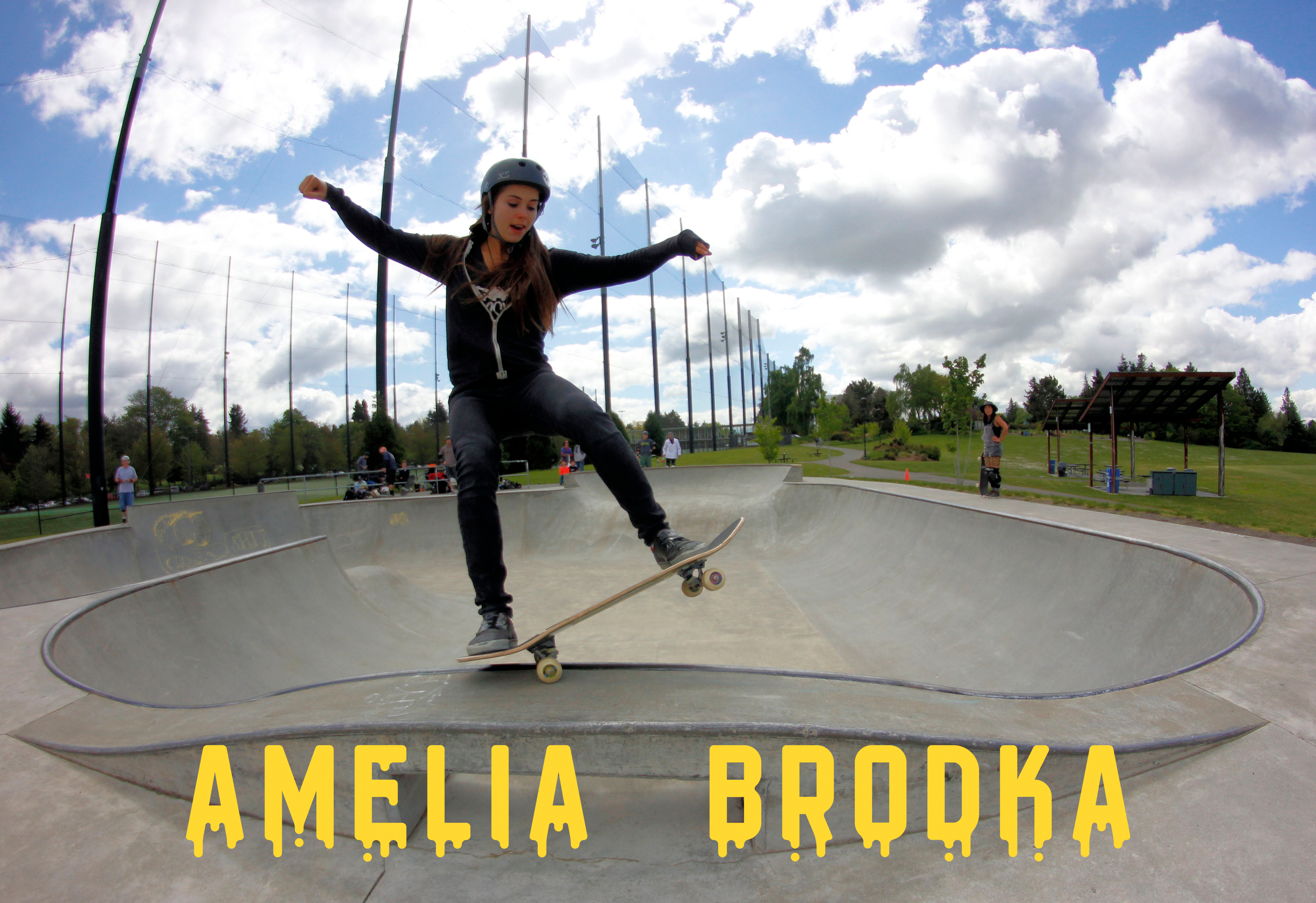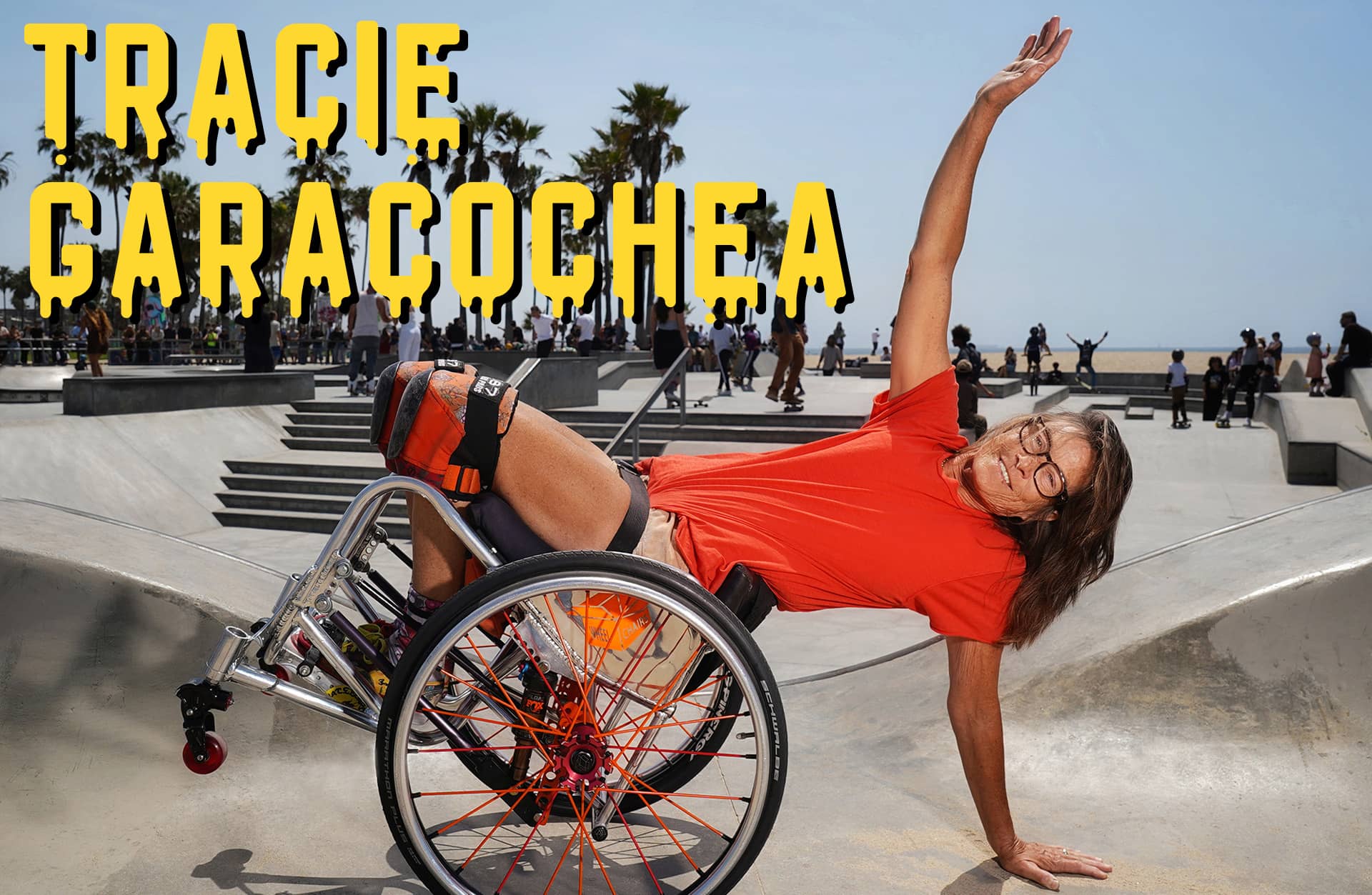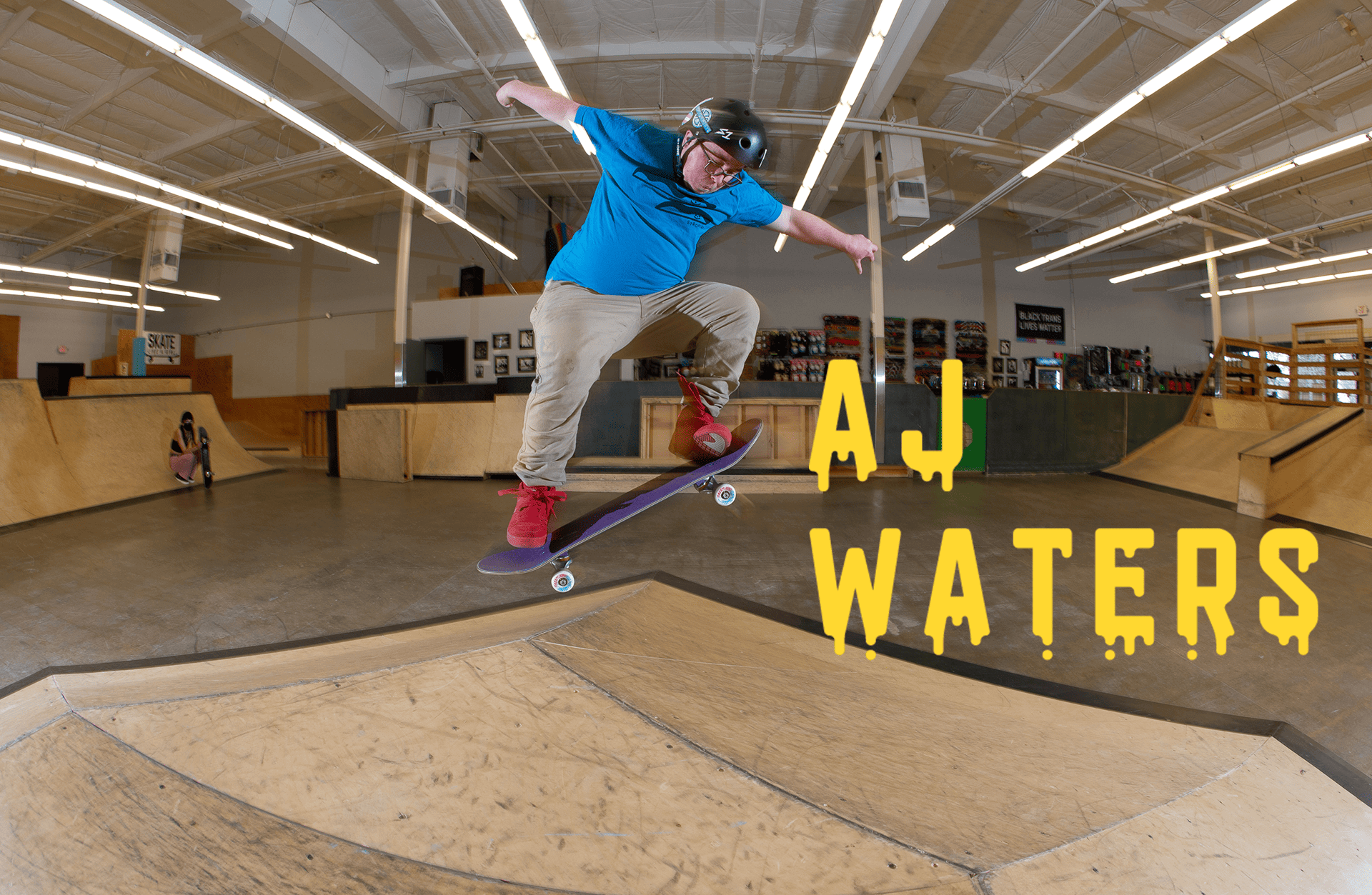SKATE // 01 MAR 2022
CHANGING THE NARRATIVE OF WOMEN'S SKATEBOARDING
Women’s skateboarding has skyrocketed in the last decade. Ten years ago skateboarding companies were shedding their women’s divisions and now women can be seen skateboarding at the 2021 Summer Olympics. It is beyond doubt that the representation of female skaters throughout the media landscape has vastly improved. “A lot of us had the experience back in the early 2010s of being able to kind of list off all of the top female skateboarders in the world and know what tricks they did,” explained women’s skateboarding activist and Olympic athlete Amelia Brodka. “And now it’s just every day there’s somebody new, whether it’s on Instagram or in the Mag or on the Thrasher website, just being showcased and honored. And it’s cool. I love losing track. I love being constantly surprised at these new names and faces and skills.”
An insatiable passion for skateboarding, beginning in childhood, drove Brodka to become an avid competitor. Upon moving to California for college, Brodka made her mark on the Transition Skating scene, establishing herself early in her pro career. As she continued to compete, it soon became clear to Brodka that female athletes were an afterthought in the skateboarding industry. In 2010 she was invited to the X Games as an alternate. Energized by the opportunity to skate alongside all the pros she’d always looked up to, Brodka made it her goal to be a full fledged competitor the next year. Upon submitting a video of her progress to the event coordinator in 2011, Brodka was informed that she would have been chosen as a competitor in the X Games, but the women’s vert event had been canceled that year. Bristling with questions, she set out to find some answers through her senior thesis project, Underexposed: A Women’s Skateboarding Documentary.
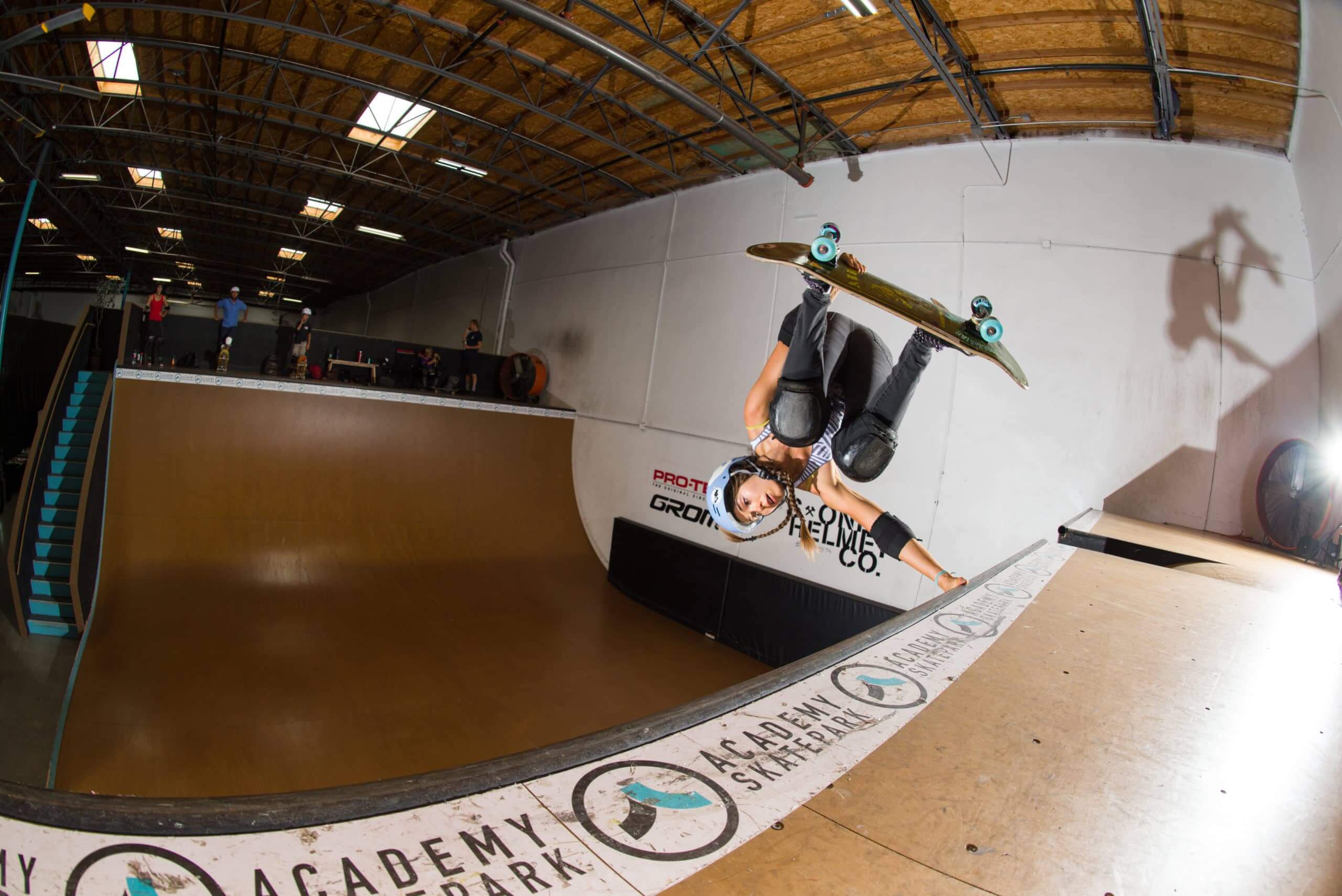
Released in 2012, the documentary took a deep dive into the skateboarding industry and its marketing tactics to see where and how more opportunities and visibility could be created for women. Brodka began by exploring how women’s events differed from men’s skateboarding events and competed at the Combi Classic. Intrigued by the positive energy at the event compared to the oppositional atmosphere at men’s competitions, writer Ozzie Ausband organized a women’s only session at skateboarder Lance Mountain’s house. With several photographers present, everyone was feeding off the positive energy of the session. Unfortunately, while carving a line in the pool, Brodka fell and popped her knee. Forced to take a break from being on her board, Brodka doubled-down on her investigation. Stilled by her recovery, she finished the film and released the long overdue wakeup call into the skateboarding community.
Well received at multiple film festivals, the movie opened many eyes to the struggles of pro women skaters. Seeing the impact her film was making on the audiences that viewed it, Brodka felt she had more to do in the skating world, even if it couldn’t be on a board. “I had a lot of this passion and drive for skateboarding that I just needed to channel somewhere,” explained Brodka. “Who knows what would have happened [if I hadn’t been injured]? I would’ve been like, yeah, I could edit this or I could go skate. I guess if you ever find yourself in a situation that is just challenging and unfortunate, just think about how that in a lot of ways, things sometimes do happen for a reason, even if they suck. And in my situation, that was definitely the knee, cliche. But true.”
After the success of her film, Brodka began to take tangible steps to fix the injustices she saw within the skate world. In the same year that she released her film, she co-founded the annual women’s skateboarding event, Exposure .
Ten years later, Exposure has established itself as a leader in women’s skateboarding. From the non-profit’s first event, where future Olympian Alana Smith landed a 540 McTwist, a first outside of men’s events, Exposure has provided a platform for talented athletes to showcase their abilities in competition.
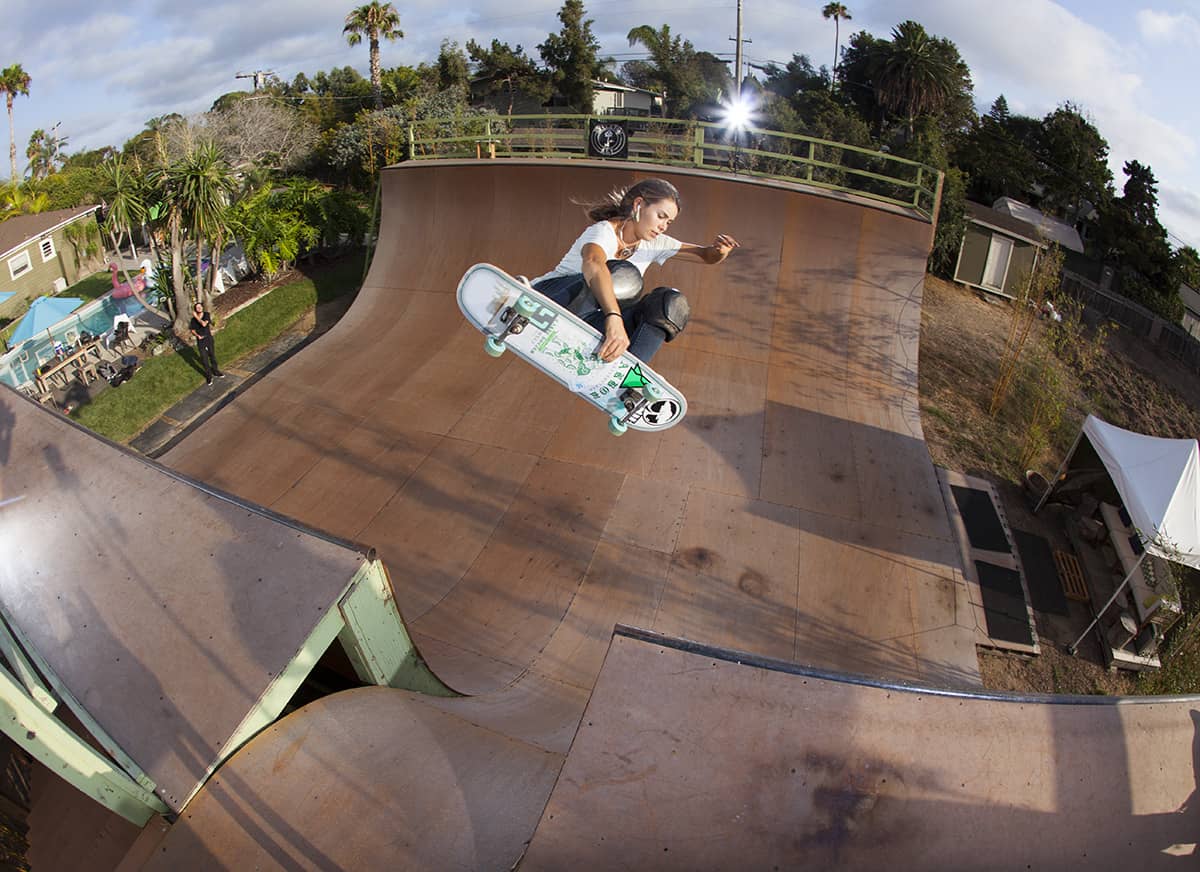
Though this doesn’t mean that Exposure has forsaken the media side of skating. In fact, in 2020, Exposure launched their virtual competition in which girls were encouraged to submit edits of their best skating on challenging terrain. “Initially it was kind of a response to the pandemic but on the other hand we were seeking to fill the void of not really seeing enough traditional skate video parts from girls,” said Brodka. “And I think that just for such a long time, it didn’t feel like girls and women had the support and resources to kind of even go for the video part route. I mean, it certainly takes either you’re really great friends with a filmmaker who’s down to just put in hours of time and travel into creating that with you, or a company would pay somebody to create that.”
The event was a huge success with 230 submissions from 23 different countries, from transition to street edits, girls were able to flex their creativity in skateboarding. Pushing themselves to a new level of ability and, as Brodka said, “rawness”.
Repeating the virtual event in 2021, Exposure was contacted by both endemic and non-endemic brands for sponsorship. “There were years where I would spend months and months, like going to trade shows or just doing cold calls and emails trying to convince people that they should sponsor a women’s skateboarding event,” said Brodka. “And to have people come to me with substantial sponsorship offers was so cool.”
Crossing the threshold from iPhone clips to professional level edits is not easy. Companies are taking a gamble when they send out their crew and equipment to film a skater. Following an athlete to a ditch or sewer for several days, waiting for them to land a trick, requires a lot of time and money. Wanting an assured return on their investment, companies have been unwilling to take a chance on female skaters.
Now, with Virtual Exposure, Brodka hopes to show those same companies all the amazing talent among the female skateboarding community. Talent, not just limited to skating itself. Many competitors worked with friends who helped film, edit, and produce their edits. By encouraging girls to practice and hone their creative skills in skating and the digital arts, a plethora of opportunities within the skateboarding industry open up. Not to mention the expanding pool of potential collaborations. “There are such great established photographers and filmmakers in our community,” explained Brodka. “People just kind of refer to mostly that group, and there aren’t enough women in that group. So hopefully that narrative will change as our community grows as well.”
Watching how the current generation of girl skaters continue to push past any preconceived boundaries, it’s difficult to believe that they won’t soon take over entirely. In the past, women’s skateboarding seemed to exist beneath a ceiling, a limit of what was deemed possible. So many skaters grew up thinking that cap was the limit of their own ability. Now, girls are unaware or just don’t care about that ceiling, to them it’s just another floor to pass through.
“I feel like it absolutely proves the hypothesis that so many of us had years ago in terms of not only if you build it they will come,” said Brodka. “But if you offer visibility to these girls and women that are doing the sport, it’s inevitably going to grow it, and it’s going to create progression, because once you see someone you can relate to doing something, it opens something up in your mind.”
For Brodka, this rapid progression in women’s skating has been bittersweet. As more and more opportunities become available, athletes who were previously regular attendees to Exposure now don’t have time for the event. At times it’s left her wondering if the community needs Exposure anymore. However, she’s been lovingly reminded by friends and community members that Exposure is still appreciated in terms of creating a space for the community to come together.
“I think we provide avenues for those girls, for kind of the more amateur level girls, but a lot of the top pros, they’ll come out and support either by watching or getting on the mic or also competing themselves,” explained Brodka. “They love it, and they just want to do like a fun event. So I think that in a lot of ways, our live events are still a space where younger girls can come and meet these skaters that they’ve been looking up to. Maybe they are skaters that inspired them to start and they could compete alongside them or just skate with them during practice or whatever it is. So I think that in a lot of ways, our competitions are just a good community vibe.”
Along with continuing to host skate events, Exposure has also begun to offer the Exposure College Scholarship. Raised by two immigrant parents, Brodka was instilled with the knowledge that a good education can open many doors. There were times though, in Brodka’s childhood, where academics were not quite as appealing as skateboarding. In a constant effort to push their daughter to do her best in school, Brodka’s parents often used skateboarding as a bribe in their negotiations.
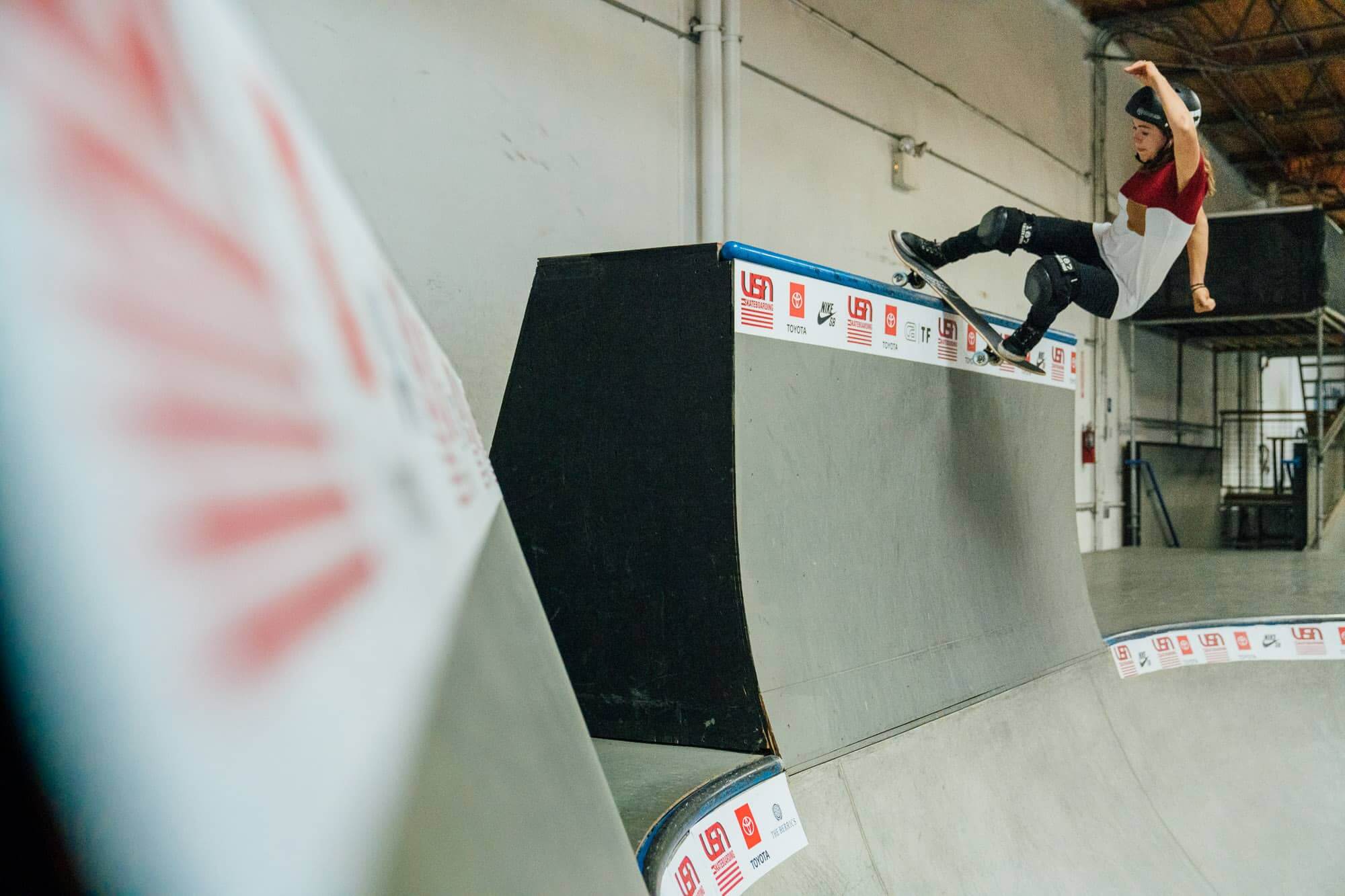
“I remember one day I came home and I told my parents that there was like, this opportunity where you can get, like, a scholarship for private high school, but it would take up a bunch of your summers and Saturday school. So I would definitely not do that,” laughed Brodka. “We got into a huge fight. And then my parents came into my room and they said, don’t you want to go to Woodward camp? And then I just immediately lit up. And I’m like, of course, that’s my dream. And they were like, well, we will send you Camp Woodward if you do this competitive academic program over the next two years. I was like, done, sold, conversation over.”
The strategy worked, and it was through college that Brodka was able to relocate to California, giving her the chance to immerse herself in the competitive skateboarding scene and build the connections that would incite Underexposed. Brodka’s collegiate experience launched her forward onto a path that united her love for skateboarding and proclivity for change. By offering the Exposure Scholarship, she hopes to provide similar opportunities to other members of the skateboarding community.
“It was really great seeing the type of applicants that we got last year because part of what we would like to see from our applicants is how they serve their communities,” explained Brodka. “And it was really hard picking only two scholarship recipients because there are some really wonderful people in our community that do great things for others and have just wonderful intentions on how to help the world as a whole through their education and through just who they are as people.”
Going into 2022, Brodka plans to continue partnering with needs in the community. “Whether it’s teaching kids how to deal with bullying and teaching young girls how to help their communities,” listed Brodka. “Whether it’s by building homeless support kits or writing empowerment journals for victims of abuse, and then learning to skateboard and come together and create new friendships and a new way to pursue health and activity.”
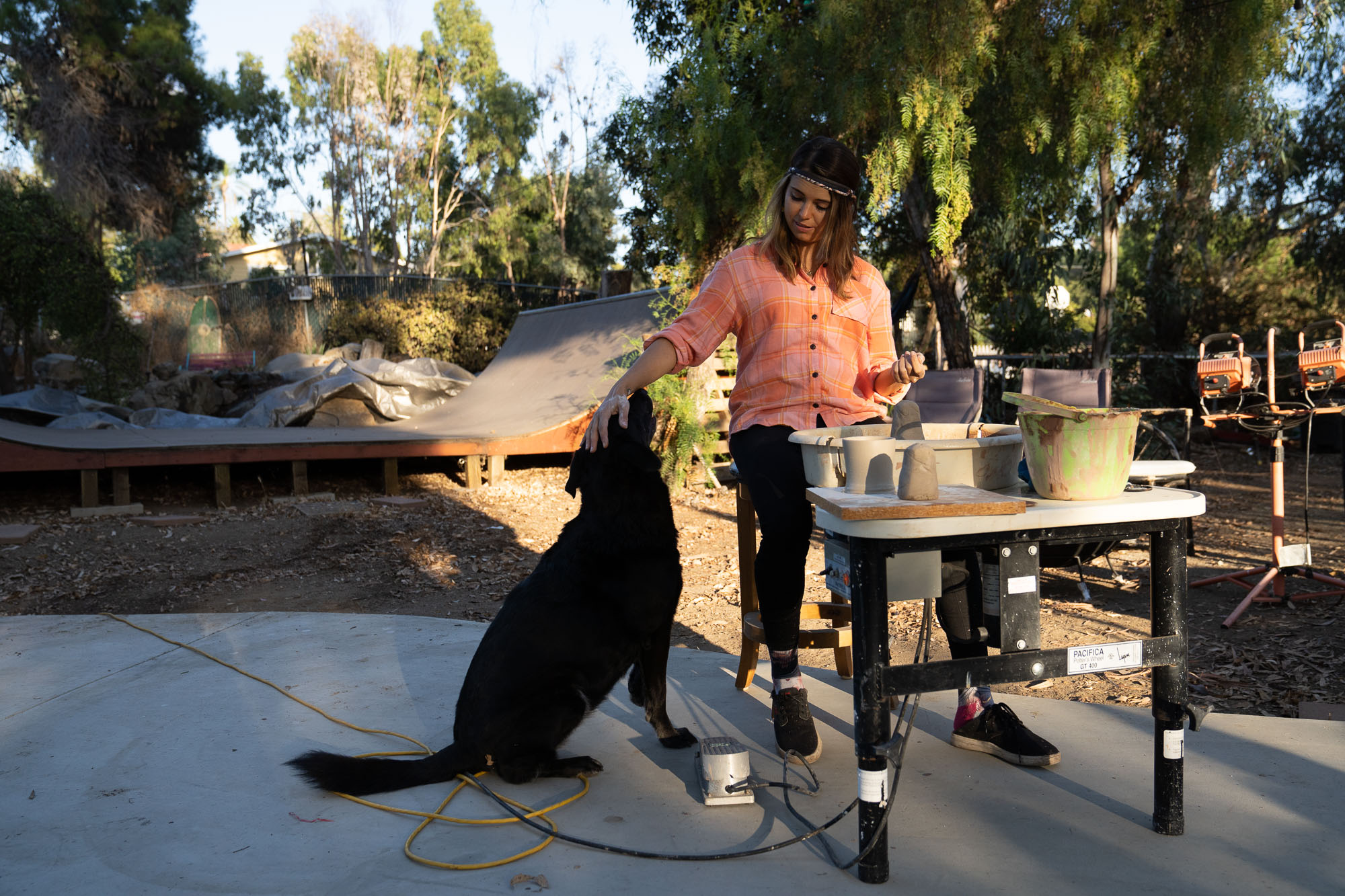
More than anything, Brodka looks forward to the possibility of getting Skate Rising, an inclusive program that teaches compassion through service opportunities and empowerment through skateboarding, up and running again. “Especially our Women’s Adult clinic,” she said. “Because I learned today that the fastest growing demographic of skateboarders is women aged thirty-five and up. So I’m really excited to provide more adult women’s clinics and sessions to help us provide a platform for that community.”
Brodka fosters an affection for skateboarding that could rival some of the greatest love stories of our time. A talented athlete and brilliant activist, the most remarkable thing about Brodka is that she continues to work everyday to share her love of skateboarding with the world around her. Creating spaces for others to learn and connect over the sport she cares so deeply about.
“The most valuable thing that I’ve gained from skateboarding was community,” said Brodka. “Because competing and doing well and having athletic achievements, it’s dope. But community is what stays with you through your whole life.”
